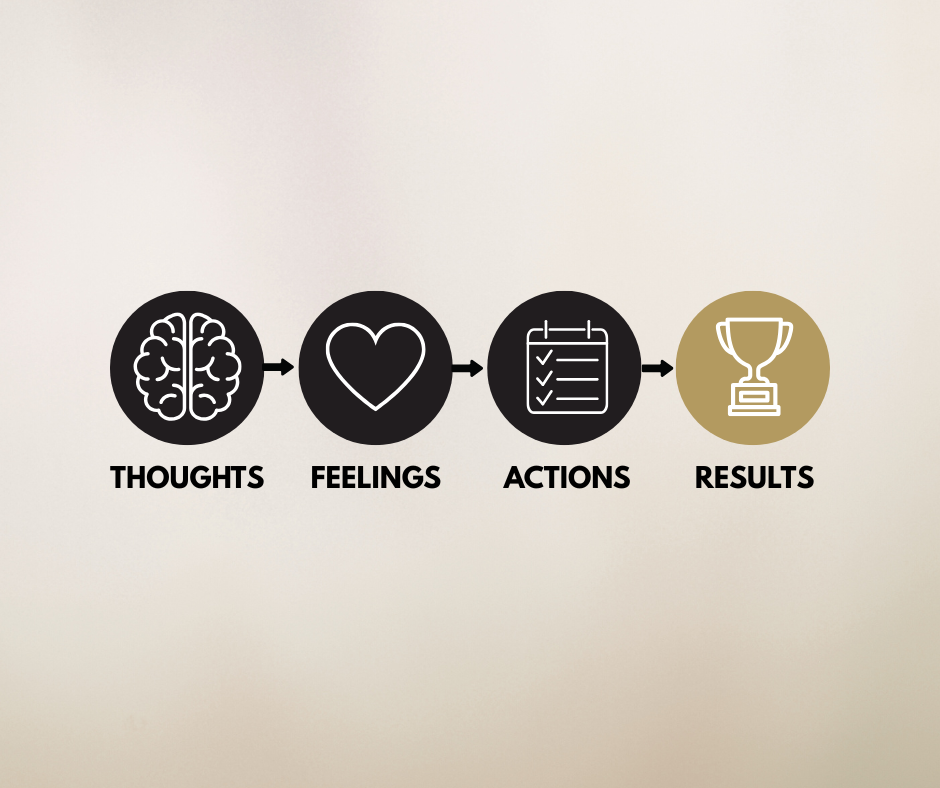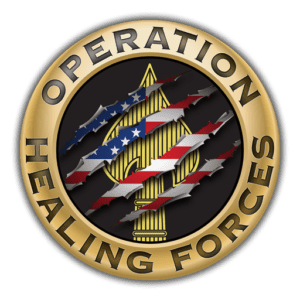By Frances Brown, Operation Healing Forces Wellness Coordinator
Thoughts-Feelings-Actions-Results
Our thoughts significantly shape our emotions, which in turn influence our actions, ultimately determining our reality. Consider a scenario where you believe you are suited for a particular job. You envision ways to leverage your existing skills to excel in that role. These empowering thoughts create a sense of capability and optimism. On the day of your interview, you plan to leave early to avoid traffic, and the interview unfolds positively. You walk away feeling grateful and confident, knowing you did everything possible and leaving the rest beyond your control.
On the flip side, if you approach the same opportunity with thoughts focused on insecurities and doubts about your skills or past rejections, you may feel disheartened and hopeless. These negative emotions can lead to anxiety, causing you to rush and leave late. Increased traffic only heightens frustration, leaving you frazzled and less articulate. This cycle of negative self-talk can quickly reestablish itself.
How Thoughts Influence Reality
This is a fundamental concept of Cognitive Behavioral Therapy (CBT): your thoughts, or cognition, manifest in your actions and behaviors. The reality you experience is shaped by the actions you take, which stem from your thoughts and feelings. The empowering part of this cycle is that you can break it by consciously choosing new thoughts or actions to achieve different results.
Try this with the job scenario: jot down a specific positive thought on a sticky note or set it as a reminder on your phone. Create a phrase that fosters the feelings you want to experience. Read motivational quotes that inspire the energy you need:
-
“Either I will find a way, or I will make one.” – Albert Einstein
-
“Do not wait to strike till the iron is hot; but make it hot by striking.” – Philip Sidney
-
“You can have results or excuses, not both.” – Arnold Schwarzenegger
-
“Follow your bliss and the universe will open doors where there were only walls.” – Babe Ruth
Actions That Support Positive Feelings
Implement actions that align with the feelings you want. Ensure your resume is polished, research the company to prepare insightful questions, and plan for a good night’s sleep. Prepare your outfit in advance to reinforce a mindset of professionalism and readiness.
CBT can also help identify negative thought patterns that may be hard to break. Thoughts fuel emotions, and those emotions can paralyze you into inaction. Inaction is still a choice. It’s natural to succumb to negative thoughts and distract yourself with Netflix or video games. However, this inaction produces results too—lack of physical activity, sunlight, and restorative sleep—that can worsen feelings of depression.
Start your day with actions that create positive feelings: pack your gym bag to remove excuses, spend time outdoors for mood-boosting vitamin D, or engage in community service.
Understanding Operator Syndrome
A strong sense of purpose, meaning, and spirituality can provide a foundation for positive thinking and resilience. Operator Syndrome can lead to negative thoughts that feel impossible to overcome. Conditions like traumatic brain injury (TBI), endocrine disruption, sleep apnea, cognitive impairments, hypervigilance, and chronic pain can make positive thinking challenging. Approximately 80% of TBI cases in SOF stem from training, as well as exposure to burn pits and other toxins. If you experience these symptoms, reach out to a healthcare provider or an OHF SOAR team member (soar@ophf.org) for support.
SOF training conditions operators to anticipate every way a mission could fail and prepare actions to address it. During active duty, this saves lives. In everyday life, it can foster negativity. Awareness of this tendency allows you to understand where these “negative” thoughts are coming from.
Why Asking for Help Matters
If you’ve ever caught yourself saying, “I’m fine,” when your body and mind are telling you otherwise, you’re not alone. But choosing to prioritize your healing doesn’t just help you—it strengthens your relationships, sharpens your focus, and helps you live with more clarity and energy.
Think of it as regular maintenance. Just like you wouldn’t drive a car forever without a tune-up, your body and mind need attention—especially after what they’ve been through.
Support and Resilience Within the SOF Community
If you’re facing a challenge, know that you are not alone. Others have likely encountered similar struggles. The Special Operations Forces (SOF) community is resilient, self-sufficient, and supportive, yet negative thought patterns can persist. We have the ability to embrace opportunities for mental balance and inspire others to seek solutions.
If you notice someone in distress, become part of their support system. Operation Healing Forces provides SOF families financial assistance per individual, paid directly to a provider for therapy and counseling services, including CBT. Share resources from OHF and other organizations committed to helping those who have sacrificed so much for our freedoms. You are not alone on your journey.
Resources:
https://www.health.harvard.edu/blog/what-is-cognitive-behavioral-therapy-202406053047
https://www.betterhealth.vic.gov.au/health/conditionsandtreatments/cognitive-behaviour-therapy
https://chrisfrueh.com/docs/Operator-Syndrome-Scale-short-form.pdf



